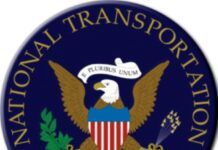 Insurance can be one of the most expensive elements in the fixedcost of owning an aircraft. It can be, but it doesn’t always have to be.
Insurance can be one of the most expensive elements in the fixedcost of owning an aircraft. It can be, but it doesn’t always have to be.
Before we go further into the cost issues, I should caution that the least expensiveisn’t always the best choice. Aircraft insurance is not heavily regulated, except in ageneral way. Each company’s policies can say pretty much as they please. Levels of serviceand underwriting practices vary. A company that would be great for a Bonanza might notlike, or even insure a homebuilt.
Also, different companies have different features and benefits to the coverage theyoffer. You might like a lot of "bells and whistles" (extra coverage), or youmight just want basic coverage. So what to do?
Who ya gonna call?
When you’re shopping for insurance, you might ask your friends who they insure with andhow they like them. You might look in one of the aviation trade magazines for thetelephone number of an insurance company, or you might call your agent who insures yourhouse or your car.
Your local agent may not be of too much help, unless he or she handles aviation inaddition to the various lines of personal insurance. Aviation insurance is highlyspecialized and most general agents don’t have enough requests for aviation insurance andfew have appointments (authorization) from the companies which do specialize in this area.
Find a good aviation specialist and call. Make sure they deal with the majority of theaviation insurance companies (and there aren’t many these days). The company I work for,AVEMCO Insurance Company, does not deal through agents, soyou’ll probably also want to call them direct at 1-888-241-7891 for a quote.
What you will generally get is a quotation from whomever you contact. It will likely bea quote for full coverage; liability including passengers, medical payments and full hullinsurance, ground and flight.
Don’t buy what you don’t need
Here’s where you can start to save money. Only buy the insurance you need, when youneed it.
For example, if you are a student pilot and can’t carry passengers yet, why pay forprotection against injury to passengers in your airplane? Sure, you’re going to carrypassengers some day and you’re just about to get your license, and insurance is such ahassle anyway- but it may take you longer than you think to get your ticket and, in themeantime, you can save money by only buying excluding passengers or occupants coverage.You will need to remember to change the coverage when you start carrying passengers, butthe savings can be substantial.
Also look at the limits of liability you carry. Many people carry $1,000,000 ofcoverage limited to $100,000 for bodily injury. Do you really need a million in a 2-seataircraft? Some people carry higher limits, such as $1,000,000 combined single limit (or assome agents call it, "a million smooth"). Do you really need that much? Theprincipal reason for liability insurance is to defend you against and protect your assets.For whatever limit you buy (for most policies), the cost of defense is paid separatelyfrom the limit of coverage on bodily injury, such as $250,000 or $500,000. This can alsosave you substantially.
Do you really need medical payments? Maybe, but most medical payments coverage onlycovers what your accident and health insurance already covers. (No, aviation is notgenerally excluded from health coverage.) Eliminating medical payments won’t save much,but it should save something. Some companies throw it in, which tells you how valuable itis!
Now, let’s look at the hull insurance. Hull (property insurance) is simply the knowncost you pay to avoid a cost you can’t afford or don’t choose to afford. Is there acost/benefit match? I know I don’t insure my cars when they decrease in value if I don’thave any loans on them (otherwise the bank will make me buy it).
If you live in snow country and can’t get the hangar door open, and couldn’t fly evenif you wanted to ’cause there’s no heater in your bird, why pay for hull coverage untilflying weather? Again, if you want hull coverage, you’ll have to remember to add it on inthe Spring, but here’s another area where you can save money.
Hull comes in three flavors
You should also be aware that hull insurance comes in three varieties, or a combinationof the three. The first insures the aircraft only, while not moving. This can be a realgood choice for an aircraft in storage or in for a complete overhaul or reconstruction. Itcan also be a good choice for someone who is only concerned about things they can’tcontrol, such as fire, theft, vandalism, windstorm or flood. The second is taxi coverage,and the third is in-flight coverage. Some companies include taxi with ground coverage,some with in-flight and some sell it separately, but the point is that eliminatingin-flight or taxi coverage can save money as well. You can save money by increasingdeductible too, but usually not much.
One of the most effective ways to save on your insurance is to pay attention to yourneeds at any given time — if you store the aircraft for the winter, change to storagecoverage during that period of time. Some airplane owners only buy flight insurance whenthey first get the plane and after they’re really comfortable with their proficiency, dropin-flight coverage. Yeah, insurance is a pain, easier to buy and put away than not, butyou may be able to save money by modifying your policy to meet your needs at various timesduring the year. Some companies do not encourage this, as it can be administrativelyburdensome to them.
Other money-saving ideas
How else can you save money? Get frequent recurrent training and make sure yourinsurance company knows you are doing things to improve your pilot skills. While mostcompanies don’t include specific discounts for training such as the FAA Wings program orattending FlightSafety, nearly all take it into consideration when determining the price.
What else? Well, if you participate in the EAA Aircraft Insurance Plan, you’ll get anenhanced policy and may qualify for discounts. Join a local EAA Chapter and you’ll get a5-10% discount. And if you’re building, use the EAA Technical Counselor Program foranother discount! Another great aspect of the EAA Aircraft Insurance Plan is the firstflight coverage you can get by using the EAA Flight Advisors Program.
Yes, insurance can be expensive, but by paying attention to your needs and asking yourinsurance representative a lot of questions, you can probably save money, sometimes a lot!


































